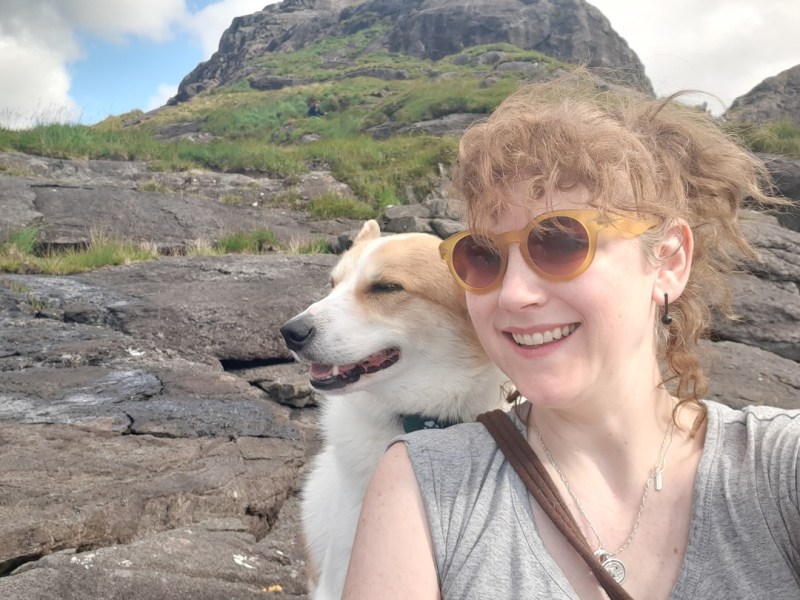Pet Vaccinations Near Me Today – As they say, prevention is better than cure. Vaccination of animals provides immunity against common diseases. In addition, many vaccine preventable diseases are caused by viruses. Antibiotics cannot fight viral diseases and they are very difficult to treat. The most common vaccines are used for the following diseases: Common diseases in dogs
All these diseases are highly contagious and can be life threatening. We recommend that your pet receive their first vaccination at 68 weeks of age. There are other vaccines that are given in certain conditions:
Pet Vaccinations Near Me Today

Domestic breeding of animals is also not recommended except under special circumstances. But in the case of childbirth, the mother should be vaccinated before pregnancy so that she is immune to infecting her children. If the mother is pregnant, vaccination is not appropriate. It is important to get your pet vaccinated to prevent contracting the disease and prevent it from spreading. Contact us if you have any questions or would like to schedule your pet’s vaccinations.
City Of Chicago :: Pet Vaccine Clinic Dates
Visit Vets Clinic is a Singapore-based veterinary clinic that offers a wide range of services including consultations, house calls, diagnostic and surgical services and dental care. Repeated visits to the vet for months for vaccinations and then boosters or titers for the rest of your dog’s life may seem unpleasant, but the diseases that pets are vaccinated against are dangerous, potentially fatal and, fortunately, generally preventable. can be The generally accepted guidelines for scheduling puppy vaccinations for the first year are as follows:
A severe and contagious disease caused by a virus that attacks the respiratory, gastrointestinal (GI) and nervous systems of dogs and other animals, distemper is spread through the air (through sneezing or coughing) from infected animals. The virus can also be transmitted through shared food and water containers and utensils. It is discharged from the eyes and nose, causing fever, cough, vomiting, diarrhea, constipation, fever, paralysis and often death. This condition is known as “hard pad” because it causes thickening and stiffness of the foot.
There is no cure for plague. Treatment includes supportive care and efforts to prevent secondary infections, control symptoms of vomiting, constipation, etc. If the animal survives the symptoms, the hope is that the dog’s immune system will have a chance to fight back. Infected dogs can carry the virus for months
One of the few viruses that can cause whooping cough. One of several viruses that can cause whooping cough.
Vaccine & Rabies Clinics
Canine coronavirus is not the virus that causes COVID-19 in humans. It is believed that COVID-19 does not threaten the health of dogs and there is no evidence that it makes dogs sick. Canine coronavirus usually affects a dog’s digestive system, but it can also cause respiratory infections. Symptoms include gastrointestinal symptoms, including loss of appetite, vomiting, and diarrhea. Veterinarians can keep dogs moist, warm and comfortable and help reduce nausea, but there is no cure for the coronavirus.
Unlike most diseases on this list, leptospirosis is caused by bacteria, and some dogs may not show symptoms. Leptospirosis can be found in soil and water all over the world. It is a zoonosis, which means it can be transmitted from animals to humans. When these symptoms appear, they may include fever, vomiting, abdominal pain, diarrhea, loss of appetite, weakness and fatigue, fatigue, jaundice, muscle pain, infertility, kidney failure (with or without liver failure). include Antibiotics are effective and the sooner they are given the better
Canine adenovirus type 2 causes respiratory disease in dogs and is one of the infectious diseases commonly associated with canine infectious tracheobronchitis, also known as “kennel cough.” Canine infectious tracheobronchitis is usually transmitted through coughing. Dogs that are around other dogs, such as in boarding houses and dog parks, are at a higher risk of infection. As part of Petco Love’s initiative to provide 1 million free pet vaccines, GA’s planned PEThood will distribute free pet vaccines to all patients through the end of February. This includes patients who come here for surgery, vaccination clinics or new health clinics.

The free vaccinations are made possible through Petco Love’s new national vaccination initiative, which provides 1 million free pet vaccinations to existing pet welfare partners, including PEThood GA, planned for family pets in need.
More Us Dog Owners Question Rabies Vaccines Amid Post-covid Anti-vaccine Wave
Parvovirus and distemper in dogs and panleukopenia in cats are some of the most common deadly diseases that affect pets and can be prevented with a simple vaccine. It is estimated that 30% of pet parents do not take their pets to the vet for preventative care each year. To address this critical need, we partnered with Petco Love to make pet vaccinations free and accessible to ensure the health and well-being of your beloved pets.
PEThood GA plans to vaccinate 3,000 pets through this effort. In addition to offering free pet visits to clinics in the state, they are hosting a free community event in Habersham County on February 26 to help support the area.
“Thanks to the love of Petco, we are able to provide these important vaccinations to pet owners for free,” said Lauren Frost, development coordinator. “We encourage community members to use these free resources to ensure the health and well-being of our community’s animals.”
Vaccines distributed as part of the Petco Love initiative will be the DAPPv canine and HCP feline vaccines and will require a veterinary exam ($15-$25) or surgery at the time of vaccination.
How Much Do Dog Vaccinations Cost?
“It’s sad when an animal gets sick or dies from a preventable disease. It’s even worse when unvaccinated animals end up in busy shelters, where deadly diseases can spread quickly, It prevents more deaths, increased costs and saved an animal’s life.” Suzanne Kogut, President of Petco Love. “By raising awareness and providing access to this important preventive treatment for animals that currently do not receive life-saving vaccines, we can prevent the spread of dangerous diseases.”
Petco Love is a non-profit organization that changes lives by making animal communities and families closer, stronger and healthier. Since our founding in 1999 as the Petco Foundation, we have strengthened animal welfare organizations by investing $300 million in grants and other life-saving efforts. Working with petcoes and organizations across the country, we’ve helped find wonderful homes for more than 6.5 million pets. Today, our love for animals enables us to lead with innovation, create the tools animal lovers need to reunite lost animals, and build on our community’s passion, inspiration and Lead with the movement and more than 4,000 pet welfare partners with us. Save Life Is Love Calling You? Visit petcolove.org or follow us on Facebook, Instagram, Twitter and LinkedIn to be a part of our rescue work every day.
Helping animals and the people who care for them by providing innovative programs and affordable services that save lives. Vaccination is not only for us but also for our dogs! Vaccination, hygiene, nutrition and a good environment are key components to ensuring the health of your favorite canine companions. While there are no hard and fast rules for how often your dog should be vaccinated, it is a good idea to be aware of the vaccines that can protect your dog.

We will first cover the basic vaccinations that all dogs in Singapore should be given before moving on to additional vaccinations and how often they should be given.
Pet Vaccinations In North Providence
The main vaccine is “household” because it protects dogs from serious and potentially fatal diseases that are prevalent in Singapore.
In puppies, the first dose of the primary vaccine should be given at 6-8 weeks of age. Final booster shots should be given every 2-4 weeks until the dog is 16 weeks of age or older. Remember that vaccinating before 6-8 weeks carries the risk that the vaccine will not be effective, so check with your vet if you are unsure.
As an adult dog, your dog should get a booster shot every year. So, if your dog was vaccinated on March 20, 2022, the next vaccination will be March 20, 2023 and so on.
If you don’t want your dog to receive booster shots every year, you can talk to your vet about non-targeted booster shots that follow their schedule. This modified schedule is created based on your dog’s lifestyle and diet. Additionally, your dog may need a serology test to assess your dog’s immunity level as well! These steps are important to confirm if your dog is eligible for a recovery break.
Know The Requirements For Your Pet’s Rabies Vaccination
This vaccine protects against canine distemper virus (DPV), canine parvovirus (CPV) and canine adenovirus (CAV). This virus is easily transmitted to our dogs if they spend time outside or around other dogs. CPV and CAV are transmitted through contact with the feces of an infected dog, while dogs can be exposed to DPV by inhaling aerosol droplets when a dog sneezes or coughs DPV.
Dogs under 20 months of age and all unvaccinated dogs

